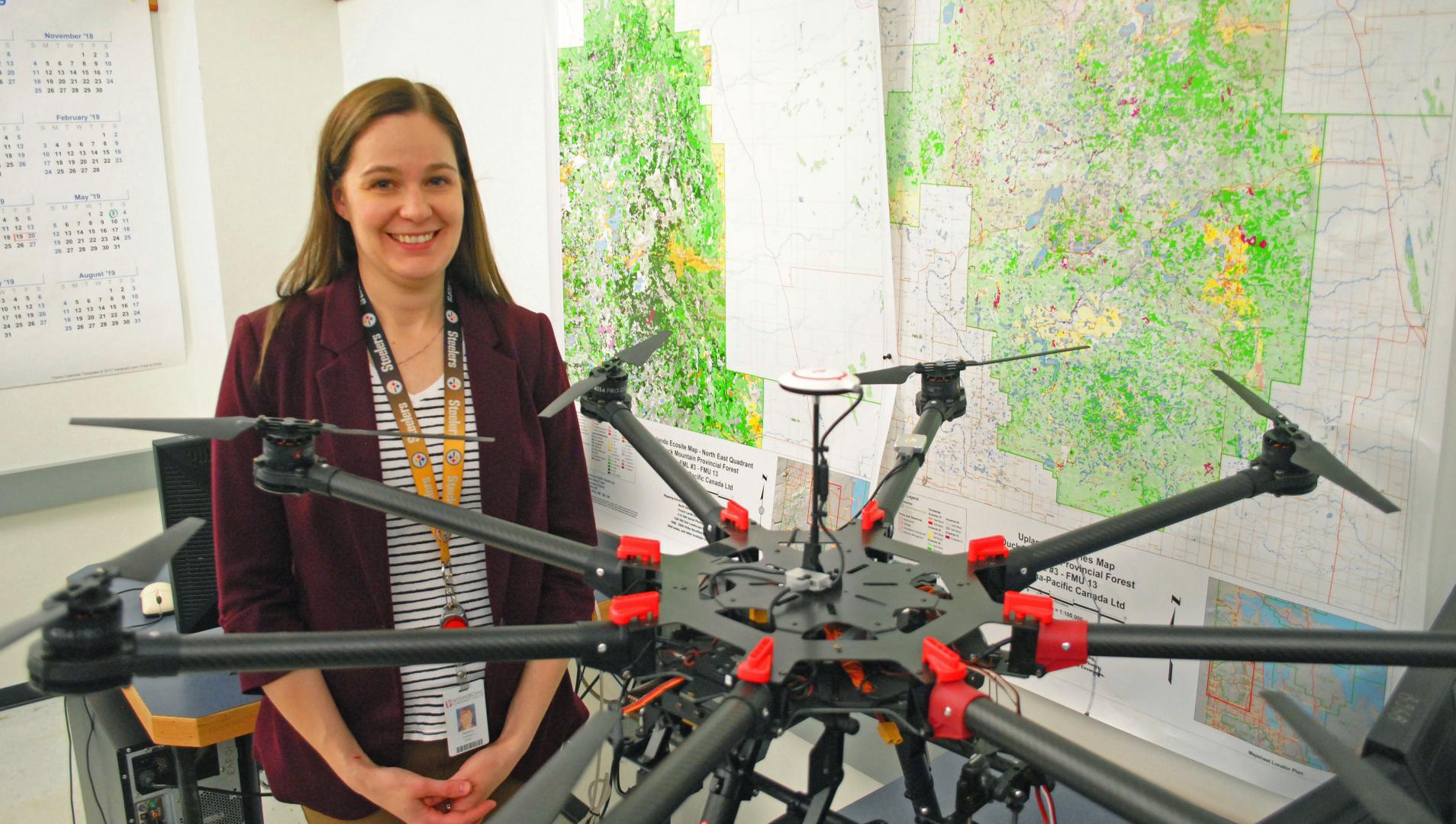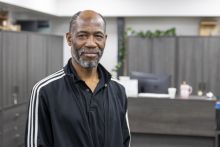Many career paths available to Assiniboine grads
December 12, 2019
Pamela Wilson’s professional career has taken many paths, with its true north remaining an interest in both agriculture and charting a unique path that encompasses a multitude of side interests. This path hasn’t been a straight one, with the Assiniboine Community College instructor facing both successes and failures along the way, but it’s a collective experience she’s proud of.
It has certainly paid off in the long run, with Wilson not only maintaining a longtime career at Assiniboine, but an ever-growing list of skills and qualifications that will allow her to keep her options open, maintaining a unique freedom those with a narrower scope of skills might not be afforded.
“Failing’s not the worst thing that can happen,” she said. “Failing can be a moment to restructure — especially at school. There is always something to learn and take away from a failure. If you made a bad decision, own up to it, and decide what your next move is.”
Constantly moving forward and adapting to a changing world is key to any success story, she said, especially those in the agricultural industry.
Growing up on a small mixed farm near Swan Lake, Wilson fell in love with animals from a young age, spurred in large part by her family’s menagerie of animals that ranged from a farrow-to-finish hog and cow-calf operation to rabbits, horses, mules and “basically anything anyone would offer to us.”
Initially interested in veterinary school, she balked at the seven years of education she would have to take, which ended up proving ironic given how much education she has subsequently amassed alongside a decade-long career at Assiniboine.
Her first foray into post-secondary education found her spend a semester at the University of Manitoba taking general studies, during which she remembers losing interest and failing all but one of her four courses.
She then shifted her attention to Olds College in Alberta, where she enrolled in the Agricultural Production and Management diploma program with a focus in beef production.
That’s when BSE hit, and she realized it might not be the time to enter the cattle industry.
So, she did what she’d continue doing for the balance of her career and diversified her portfolio by shifting her course selection more heavily toward agronomy and business.
After earning her diploma, she met an engineer who piqued her interest in AutoCAD, a civil engineering program that allows people to map out buildings. That interest led her to Assiniboine, where she enrolled in the Geographic Information System (GIS) program.
Similar to AutoCAD, she said GIS focused on actual locations on the earth instead of arbitrary buildings, which made it more interesting. That, and it carried broader agricultural analysis to dissect field characteristics, which also resonated more deeply with her.
Upon graduation, she followed her career to Killarney, where she worked in precision agriculture technology before moving on to Mazer Implements, for whom she installed GPS systems on various agricultural systems, first in Portage la Prairie and then out of their Brandon office.
It’s a rapidly changing career that she said has kept her constantly engaged in the latest technology, which she has tried her best to keep on top of.
My GIS position didn’t exist in many of the places I worked. Employers had to be shown the potential need and convinced there was value in them having a person with my skills.
"If a person sees an opportunity where they can offer value to a company, I encourage them to at least try to rationalize that position to the employer.” she said. “The employer may not understand how or why they need that person with certain skill sets until it is justified and proven.”
Furthering her education at the Brandon University where she studied geomatics, she found herself educating farmers on precision agriculture as part of the Manitoba Zero-Tillage Research Association as well as in her role at Mazer Implements.
“When a producer buys a GPS from Mazer’s, I would install it, but as I’m installing it I’m teaching them about GPS satellite systems and how to get the most out of their investment,” she said.
An instructing job at Assiniboine felt like the next logical step, and she has been with the post-secondary institution full-time since 2009.
Drawing from her own roundabout career path, she said that one of her key pieces of advice for students entering the agricultural sector is to diversify.
As she experienced with the BSE crisis and countless other factors that altered her own path, constantly moving forward and learning new skills can help people both weather most economic storms as well as allow them to follow their evolving interests.
In today’s globalized world, where trade rifts can easily upend commodities’ profitability, she said this message is more relevant now than ever.
Don’t lock yourself into one narrow piece of the industry.




